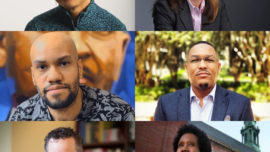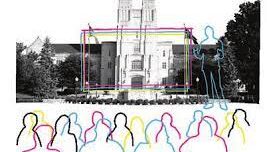University of Georgia
The Arts at the University of Georgia
The University of Georgia is enlivened by a dynamic, multi-faceted community of artists and researchers in the arts. The University of Georgia Arts Council, the Willson Center for the Humanities, and UGA Arts Collaborative foster advanced interdisciplinary exchange on campus in and through the arts; the latter offers graduate assistantships in interdisciplinary arts research. Academic programs in the arts are housed in the Lamar Dodd School of Art, the Hugh Hodgson School of Music, the Department of Theatre and Film Studies, and the Department of Dance.
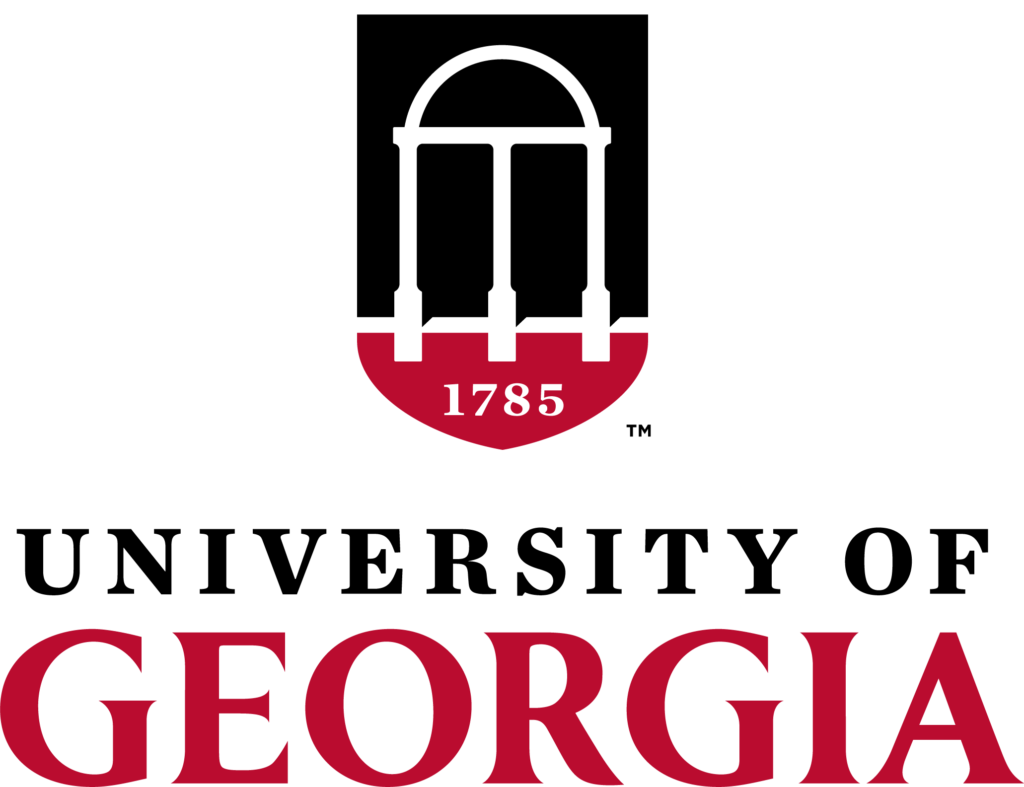
a2ru Campus Contacts


Initially trained as an architect in her hometown of Sofia (the capital of Bulgaria), Sonia Hirt holds a master’s and a doctoral degree in urban and environmental planning from the University of Michigan. Prior to joining the University of Georgia, she served as Dean of the School of Architecture, Planning and Preservation at the University of Maryland in College Park; Associate Dean for Academic Affairs at the College of Architecture and Urban Studies, Virginia Tech; and Visiting Associate Professor at Harvard’s Graduate School of Design. Sonia is the recent winner of a Guggenheim Fellowship.
Considered one of the most prestigious awards for academics, the Guggenheim attracts 2500-3000 applications per year for about 170 awards. According to UGA records, only twelve UGA faculty in the history of the university and the history of the fellowship, have received this honor. This year, UGA has two winners: Hirt and Professor Andrew Herod from Geography. Sonia will use the fellowship tenure to continue—slowly—working on her sixth book, entitled “America’s Hurry: Making Sense of Time and Space in My Adopted Country.” The book is under contract with MIT Press.

Nicholas Allen is the director of the Willson Center and holds an endowed Professorship in the Humanities. His latest book, Ireland, Literature, and the Coast: Seatangled, was published in December 2020 by Oxford University Press. He has been the Burns Visiting Scholar at Boston College and has received many grants and awards, including from the Mellon Foundation, the National Endowment for the Humanities, and the Irish Research Council.
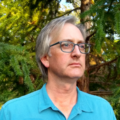
Mark Callahan is the Artistic Director of the UGA Arts Collaborative, an interdisciplinary initiative for advanced research in the arts at the University of Georgia, and serves on the faculty of the School of Art. He is a graduate of Cranbrook Academy of Art and Rhode Island School of Design, where he was a member of the European Honors Program in Rome, Italy. Callahan’s work has been included in exhibitions at the Massachusetts Museum of Contemporary Art (MASS MoCA), Club Internet, MAMA: Showroom for Media and Moving Art in the Netherlands, the Telfair Museum in Savannah, Georgia, and used in concert by R.E.M. as a large-scale video projection. He is a co-principal investigator of “Enhancing imaginative and collaborative STEM capacity through creative inquiry,” an arts + STEM graduate workshop project supported by the National Science Foundation and a contributor to “Critique Is Creative” by Liz Lerman and John Borstel (Wesleyan Press).
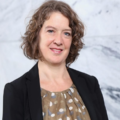

As Interim Vice Provost for Academic Affairs, Elizabeth Weeks assists with all matters of academic administration, policy and planning. Additionally, she chairs the UGA Arts Council, co-chairs the UGA Humanities Council and oversees several units and initiatives that report to the Provost’s Office.
The Charles H. Kirbo Chair in the UGA School of Law, Professor Weeks has served as Associate Provost for Faculty Affairs since 2020. In this role, she directs UGA’s Office of Faculty Affairs and works closely with campus leaders on faculty-related policies, processes and records while also overseeing a robust slate of professional development programming for faculty.
Professor Weeks previously served as Associate Dean for Faculty Development in the School of Law. In this role, she worked closely with faculty to expand and promote scholarly activities, including external funding, through mentorship and professional development. Prior to her tenure at UGA, Professor Weeks was a professor at the University of Kansas School of Law where she also served as Director of the Medical-Legal Partnership Clinic.
Professor Weeks’ research focuses on health care financing and regulation, health care reform, and public health law. She is the author or co-author of two books, with a third solo-authored book scheduled for publication in 2027. She has written nearly 50 book chapters and articles in law reviews, journals and other publications. Her honors include election to the American Law Institute; the Health Law Scholars Award from the American Society of Law, Medicine, and Ethics; and the Howard M. and Susan Immel Award for Teaching Excellence from the University of Kansas School of Law.
Her involvement in the campus community includes extensive service on University Council and several of its committees, the university’s Institutional Review Board and the University Review Committee. She is an alumna of the university’s Women’s Leadership Fellows Program, the Public Service and Outreach Fellowship and the College of Public Health’s Leadership Academy. Her national service includes editorships and leadership roles such as Chair of the Sections on Law, Medicine, and Ethics and Torts and Compensation Systems of the Association of American Law Schools.
Professor Weeks joined the UGA faculty in 2011. An Athens native, she earned her bachelor’s degree from Columbia University and her law degree summa cum laude from UGA.


David Saltz is a Professor of Theatre and Film Studies, and Executive Director of the UGA Arts Collaborative. He is a specialist in modernist theatre and performance, performance theory, the philosophy of art, and directing. His primary research focuses have been performance philosophy and the interaction between live performance and digital media. He was Principal Investigator of Virtual Vaudeville, a large-scale research project funded by the National Science Foundation to simulate a nineteenth century vaudeville performance on the computer. He has explored the use of computer technology extensively in his own work as a director and teacher. Along those lines he established the Interactive Performance Laboratory at UGA, has directed a series of productions incorporating real-time interactive digital media, and has created interactive sculptural installations that have been exhibited nationally. He is co-director for the NEH Institute on Digital Technologies in Theatre and Performance Studies. His recent work focuses on robotic theatre. He is co-author (with Sarah Bay-Cheng and Jennifer Parker-Starbuck) of Performance and Media: Taxonomies for a Changing Field (University of Michigan Press, 2015), coeditor (with David Krasner) of the book Staging Philosophy: Intersections between Theatre, Performance and Philosophy (University of Michigan Press, 2006), and has published numerous articles in scholarly journals and books. Before coming to Georgia, Dr. Saltz taught at State University of New York at Stony Brook and The College of William and Mary.
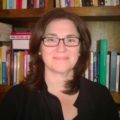

Isabelle Loring Wallace is Associate Professor of Contemporary Art at the Lamar Dodd School of Art. Her research focuses on a wide range of objects and images, ranging from mid-twentieth-century American painting to early twenty-first-century photography, video, and installation. She is the author of numerous articles and exhibition catalogue essays on artists such as Manet, Duchamp, Jenny Saville, Wim Delvoye, Steven Meisel and Paul Pfeiffer, and the co-editor of two anthologies that reflect her commitment to thinking about contemporary art within broad cultural and historical contexts: Contemporary Art and Classical Myth, co-edited with Jennie Hirsh (Ashgate 2011) and Contemporary Art About Architecture: A Strange Utility co-edited with Nora Wendl (Ashgate 2013). She is currently preparing a third anthology, also with Jennie Hirsh on Ventriloquism and Contemporary Art. In addition, Professor Wallace is also author of Jasper Johns (Phaidon, 2014) and is currently completing a second book on Johns that considers his work in conjunction with contemporaneous developments in the fields of genetics and psychoanalysis. Simultaneously, she is working on a new project that considers recurring intersections between new media art and assorted Judeo-Christian themes. At the Dodd, she teaches undergraduate- and graduate-level courses on postwar visual culture, as well as the art history area’s required seminar on historiography and methods.

